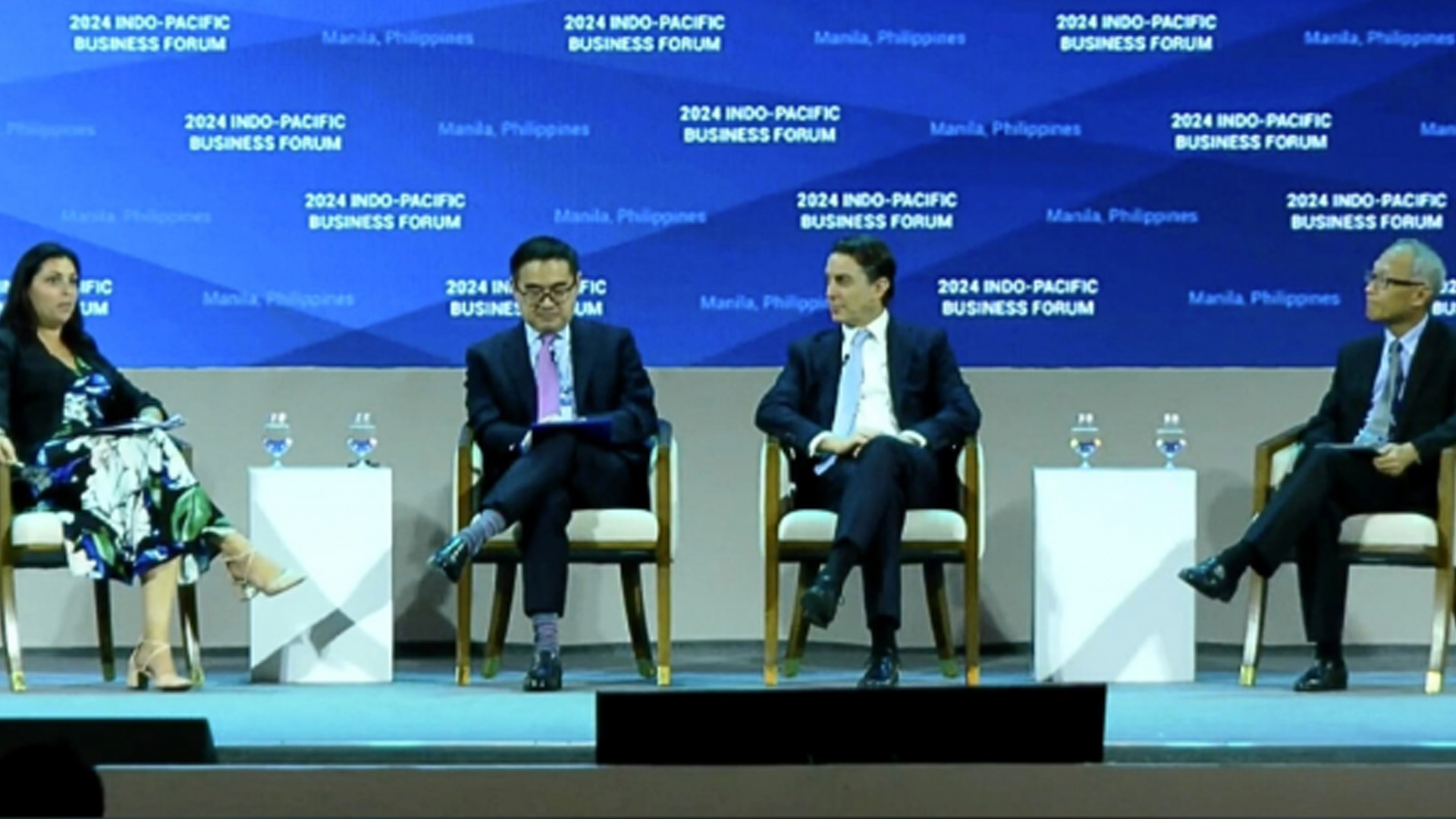The Philippines, United States, and Japan have started discussing the sectors they would prioritize for the Luzon Economic Corridor, the US State Department said in a statement Wednesday (Manila time).
The US State Department said the discussion happened at the inaugural meeting of the Luzon Economic Corridor Steering Committee, held on the sidelines of the Indo-Pacific Business Forum (IPBF) here Tuesday.
“The partners discussed priority sectors for engagement and reviewed potential projects and areas of interest, committing to future meetings on a quarterly basis,” the US State Department said.
The Steering Committee’s first meeting was attended by US Senior Advisor to the President for Energy and Investment Amos Hochstein, along with Acting Special Coordinator for the Partnership for Global Infrastructure and Investment (PGI) Helaina Matza, and co-chairs Philippine Special Adviser to the President for Investment and Economic Affairs Secretary Frederick Go and Japan Ministry of Foreign Affairs Director-General for International Cooperation Bureau Ishizuki Hideo.
The Steering Committee will implement the commitment of the Trilateral Leaders to develop the Luzon Economic Corridor during their historical meeting in Washington DC last April.
The Luzon Economic Corridor is under the Partnership for Global Infrastructure and Investment (PGI) Indo-Pacific Economic Framework (IPEF) Investment Accelerator. It is also the first economic corridor in the Indo-Pacific region.
“The Corridor will support connectivity among Subic Bay, Clark, Manila, and Batangas as well as facilitate strategic, anchor investments within each hub in high-impact infrastructure projects, including rail, port modernization, agribusiness, and clean energy and semiconductor supply chains and deployments,” the US State Department said.
In a plenary panel at the IPBF, Hochstein lauded President Ferdinand R. Marcos Jr. for the Philippine government’s initiative to further ease doing business in the country.
“President Marcos is doing the right approach which is to not just announce what the vision is, but to put pressure on agencies to accelerate their internal processes, to understand what the rules of the game, say from tax to permitting, to land use,” he said in a press briefing here.
Meanwhile, President Marcos’ economic czar Go said aside from improving the ease of doing business in the country, the government has been pushing for legislation and other policies that will make the Philippines more conducive to investments.
This includes the Corporate Recovery and Tax Incentives for Enterprises Maximize Opportunities for Reinvigorating the Economy, or the CREATE MORE Bill. (PNA)







